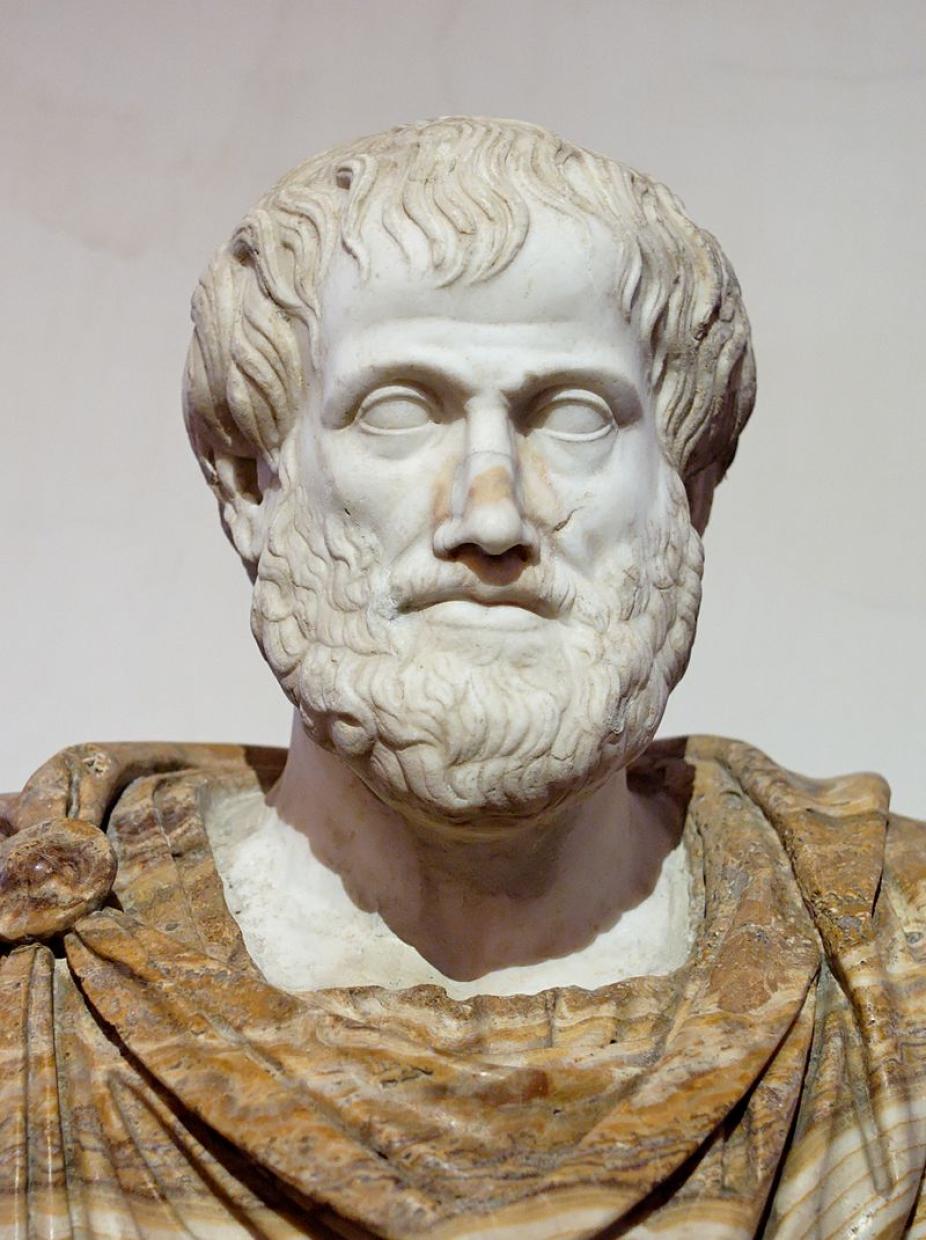Aristotle (384–322 BC)
Aristotle was born in 384 BC in Stagirus, Macedonia, where his father was court physician to the King. He was sent to Athens in 367 BC to study at Plato's Academy.

Marble bust of Aristotle.
http://en.wikipedia.org/wiki/Aristotle
In 342 BC he was invited back to Macedonia to tutor the crown prince Alexander (who later left his mark on history as Alexander the Great). Around 335 BC he returned to Athens and founded his Lyceum.
The breadth (and volume!) of Aristotle's writings is staggering by any standard. He wrote on philosophy, logic, politics, biology, physics, and cosmology. In his "On the Heavens (De caelo)", Aristotle adopted with some modifications the geocentric planetary model of Eudoxus (ca 400–347 BC) and Callipus (ca 370–300 BC), but ascribed physical reality to the planetary spheres. His physics relies on an essential distinction between the sublunar realm, made of the four elements earth, water, wind and fire, and the celestial realm, made of ether (or "quintessence") and deemed incorruptible.
Aristotle offered the world an internally consistent physics and cosmology of hitherto incomparable breadth and explanatory power, which was to endure for more than 1200 years. In conjunction with Ptolemy's mathematical model of planetary motions, it was to form the cornerstone of the Christian medieval view of the cosmos.
Aristotle died in Chalcis, north of Athens, in 322 BC.
Bibliography
Sachs, J. 1995, Aristotle's Physics, Rutgers University Press.
Dicks, D.R. 1970, Early Greek Astronomy to Aristotle, Cornell University Press.